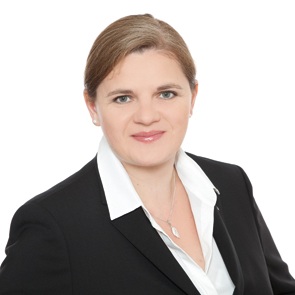The new Implementing Regulation 282/2011 (EU) came into effect on 11 July 2011. It contains uniform interpretation rules for various questions regarding the EC-VAT-Directive for all EU-countries. As of 1 January 2015, the rules regarding the place of supply for services will change. From then on, telecommunications, broadcasting and electronic services will be taxed in the Member State in which the customer is established. As a result of these changes, the Implementing Regulation (EU) has been amended to include important interpretation rules, which are generally applicable from 1 January 2015 onwards. Furthermore, the Implementing Regulation (EU) contains regulations regarding the supply of services connectedwith immovable property and admission to events.
1. Telecommunications, broadcasting, electronic services
1.1 Definition
Art. 7 already contains a definition and an exemplary list concerning electronic services. The new implemented Art. 6a defines telecommunication services and Art. 6b defines broadcasting services.
1.2 Determination of supplier
Electronic services are supplied to a customer through telecommunications networks or via an interface or portal (such as a market place for applications). Furthermore, telephone services are supplied through the internet. For such cases, it is necessary to determine who is regarded as being the supplier of the services.
1.2.1 General rule: commissionaire structure
According to Art. 9a para 1, it has to be assumed that a taxable person taking part in the supply shall be regarded as acting in his own name but on behalf of the electronic service provider. Therefore, in general, a commissionaire structure according to Art. 28 VAT Directive is given. As a consequence, the supplier of electronic services provides his service to the telecommunications network and the telecommunications network provides the service to the (in general non-taxable) final customer.
1.2.2 Conditions to avoid the commissionaire structure
According to Art. 9a para 1, it is possible to avoid the commissionaire structure. A commissionaire structure is not assumed if the service provider is explicitly indicated as the supplier by the taxable person (telecommunications network) and this is reflected in the contractual agreements between the parties. It is required that, in all invoices which are issued by the taxable person taking part in the supply of the electronic services, as well in the invoices or receipts to the final customer, that the electronic services and the supplier of the electronic services are identified. If these preconditions are met, the supplier of the electronic services provides the services directly to the final customer. The question is, whether it is necessary to explicitly name the supplier of the electronic services and the provided services or whether abbreviations, figures or symbols, can be used.
1.2.3 Exception for payment providers
The rules regarding the commissionaire structure should not apply to taxable persons who only provide the processing of payments in respect of the electronic services (Art. 9a para 3). Payment providers (e.g. providers of credit cards, PayPal, SMS payment service providers) are considered as not taking part in the supply of the electronic services.
1.3 Rules regarding the establishment of the customer
The new Articles 24a – 24fa contain presumptions regarding the establishment of the customer. The supplier can rebut a presumption where he has three pieces of non-contradictory evidence indicating that the customer is established, has his permanent address or usually resides elsewhere. The sufficient evidence (e.g. billing address, IP-address, mobile country code) is listed in Art. 24ga.
2. Supply of services connected with immovable property
In order to ensure uniform treatment of supplies of services connected with immovable property, respective interpretation rules are included in the Implementing Regulation (EU). The amendments regarding the supplies of services connected with immovable property in Art. 13g, 31a and 31b shall apply from 1 January 2017. However, in case of doubt, the new rules should be considered before that date as well.
2.1 Definition„immovable property“
A definition of the concept of immovable property has been implemented. The definition is based on the guidelines from the 93rdsession of the VAT Committee dated 1 July 2011.
2.2 Examples
Art. 31a contains a list of examples in para 2 which are generally regarded as supplies of services connected with immovable property. Para 3 contains samples which do not have a sufficiently direct connection with the property. The list is exemplary without being definitive.
3. Admission to events
Art. 33a should clarify that admissions to events are taxable where the event actually takes place, also in cases where tickets to such events are not sold directly by the organizer but distributed through intermediaries (see Newsletter 13/2013)

Contact:
Evline Beer
Lawyer, Certified tax consultant
Phone: +49 (0)89 / 217 50 12 - 35
evline.beer@kmlz.de
As per: 19.07.2013
